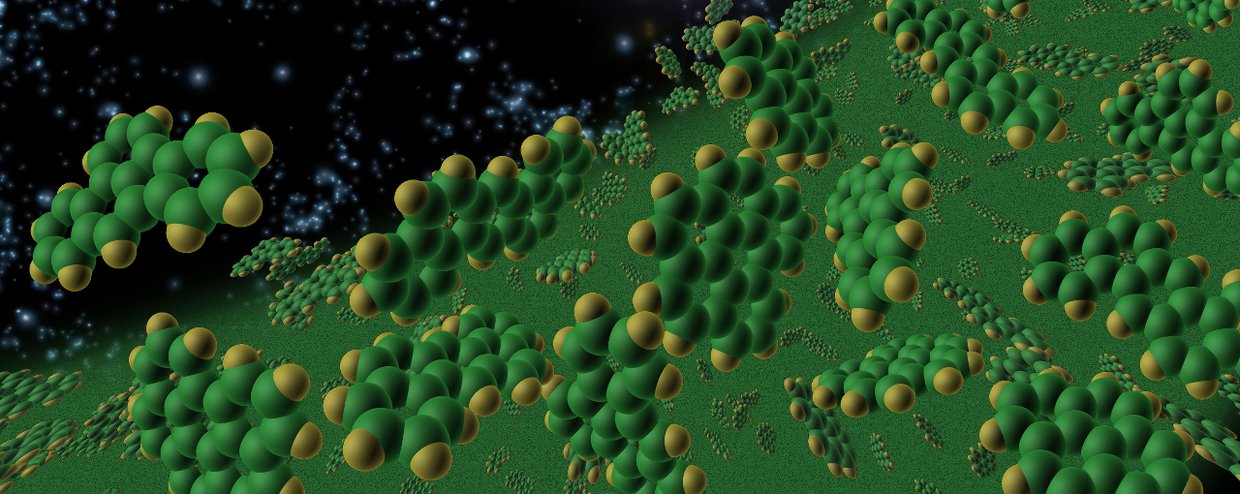
April 13, 2018
Research Highlight
UV-Irradiated PAHs in Water Ice

An artist's conception symbolically represents complex organic molecules, known as polycyclic aromatic hydrocarbons (PAHs), seen in the early universe. The large molecules, comprised of carbon and hydrogen, are thought to be among life's building blocks.Image credit: NASA/JPL-Caltech/T. Pyle (SSC).
Scientists have reported that aromatic alcohols and ketones are formed when coronene molecules in water ice are irradiated with ultraviolet (UV) light. Coronene is a type of polycyclic aromatic hydrocarbon (PAH), a diverse collection of molecules that are found in many environments on Earth and beyond, including in the interstellar medium and in comets. The findings are supported by the fact that previous UV irradiation studies with other PAHs have also resulted in the formation of alcohols and ketones, as well as CO2 and H2CO. The study reports constants of decay for coronene and specroscopic signatures of photoproducts formed following UV irradiation.
PAHs are of interest to astrobiologists because some theories suggest that they could have played a role in the origins of life on Earth due to their availability in the Universe and their high stability. The interaction of PAHs and water-rich ices is an important area of study in this regard.
The paper, “Photochemistry of Coronene in Cosmic Water Ice Analogs at Different Concentrations,” was published in The Astrophysical Journal. The work was supported by NASA Astrobiology through the Exobiology & Evolutionary Biology Program.
Related Links:
Excited States of PAHs
PAH IR Spectral Database